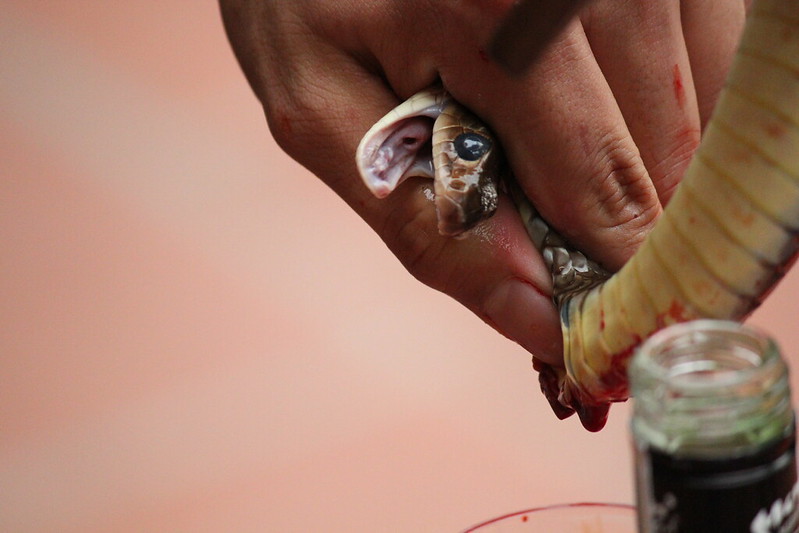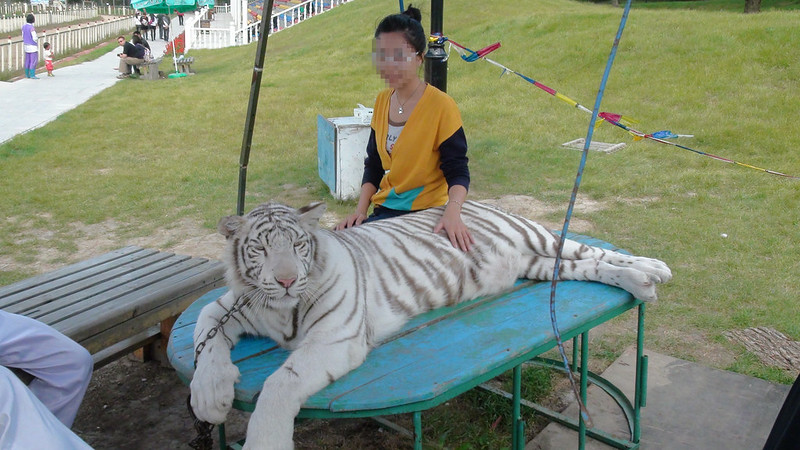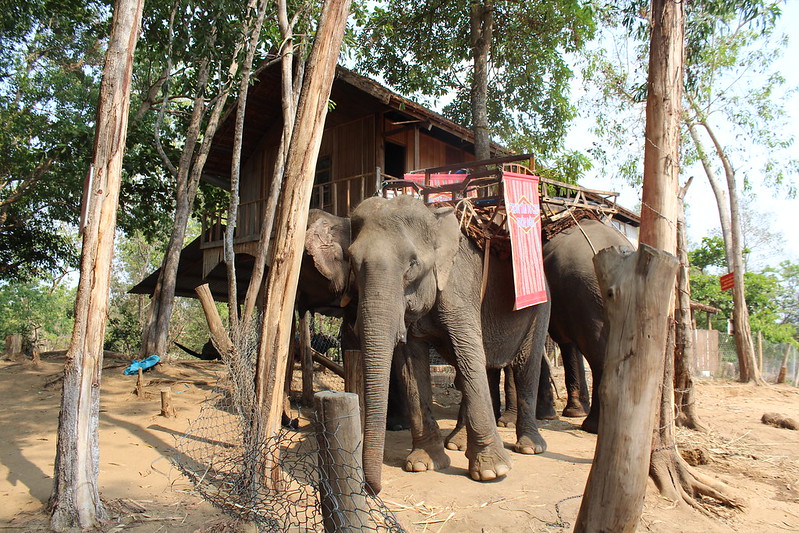5 rules for an incredible, cruelty-free holiday in Asia this winter
16 November 2018

From bustling cities to dramatic mountains and white sand beaches, Asia has it all, but tourists must travel responsibly to avoid animal cruelty.
This winter, tens of thousands of visitors will travel to beautiful locations across Asia in search of some winter sun.
While there is a never-ending array of activities across the continent which don’t involve animals, sadly, animal cruelty is still often connected with the tourism industry. But don't worry – arm yourself with the right information and it's easy to do the right thing.
Here's how to have a dream holiday without creating a nightmare for animals:
1/ Don't eat “exotic” animals (including dog meat)
Asia’s cuisine is hugely varied and among the best in the world. From spicy Thai papaya salad to fresh Vietnamese spring rolls there is no end to the amazing food on offer.
But while being open to new experiences and tastes, visitors shouldn’t abandon their ethics. Avoid so-called “once-in-a-lifetime experiences” to eat rare and unusual animals such as pangolin, snakes and bush meats. The craze for such experiences is causing widespread poaching which devastates wild populations. Such meals have nothing to do with local culture and in many cases are illegal.
And while dog meat may be legal and available in many countries in the region, don’t let that fool you. The dog meat trade is rife with illegality and animal cruelty. Don't mistake eating dog meat for a "local experience" – most locals don't. It's not eaten due to poverty or a lack of choice. It's largely eaten for luck. Dog meat is expensive with profits boosted by dog thieves stealing much-loved companion animals from the streets.
2/ Avoid "exotic" liquors such as scorpion, sea horse, tiger cub or bear paw
In Vietnam it isn't too difficult to find bootleg rice wine infused with illegal wildlife products. As disgusting as the concept may seem, some thrill-seeking tourists like to seek out such concoctions.
Unfortunately, what may appear like fun is actually robbing Vietnam of its natural heritage. At-risk species commonly found in rice wine jars include sea horse, bear paws and even whole tiger cubs. Instead of condoning and funding wildlife crime, seek out and enjoy herbal infusions instead.
3/ Don't purchase "weasel coffee" – and don’t visit the farms
So-called "weasel coffee" is advertised for sale in many cafes in city tourist areas. In reality the product is more likely produced from civet cats. While the coffee has become fashionable in many European countries, it is a product of animal cruelty. Civets are fed a completely unsuitable diet almost entirely of coffee beans while being held in tiny cages. The beans along with their excrement are then brewed to make coffee, so you'd be drinking their ground up faeces.
In areas where such coffee is produced it is common for tourists to be brought there while on completely unrelated tours. So be wary, if you’re guide or driver offers to take you to a weasel or civet coffee farm while on another tour, be firm and say no. You don’t want anything to do with cruelty.
4/ Avoid any facility which offers close contact with wild animals
If a facility – whether it be a zoo, circus, safari park or sanctuary – is offering or encouraging close contact with wild animals, then avoid it.
Close contact with wild animals as part of tourism is simply not possible without affecting the welfare of the animals.
Unfortunately, many tourism facilities in Asia continue to offer experiences such as photos with bears and tigers, elephant rides, and animal performances.
The cost of these brief experiences for the tourist, is a lifetime of suffering for the animals as they are taken from their natural environment, separated from their families and kept in unsuitable conditions for the rest of their lives.
Any facility which claims to be a sanctuary, but offers contact with wild animals, certainly isn’t what they claim to be.
And if a hotel, shop, bar or tourist attraction has a caged animal, vote with your purchasing power and go elsewhere. Every dollar spent at place like this is a vote for the business practise to continue.
5/ Elephant exploitation sucks – support this new model to encourage change
For holiday-makers in Thailand’s Chiangmai, or Vietnam’s Buon Ma Thuot, elephant rides may seem to be all part of the fun and adventure.
But many tourists innocently paying for such experiences at so-called “elephant shelters”, have no idea of the true cost.
Elephant “shelters” usually aren’t as innocent as the name suggests. The animals’ welfare is not the primary concern – tourists dollars take priority.
Before an elephant begins to carry tourists, it must first undergo a process known as “phajaan”. This Thai word literally means “to crush”.
Young elephants are taken from their mothers, and trapped in small wooden cages the size of their bodies. They are chained and beaten for as long as it takes to “crush” their will and render them docile enough to follow human commands.
When the tourists arrive, their shift begins. Bullhooks are used to strike and hook the ears or flanks and make sure the huge animals follow commands.
When the tourists are gone and the elephants are finally allowed to rest from trekking in scorching temperatures, they often do so alone, chained without the companionship and social interactions they so desperately need.
In the last few years newspapers have reported elephants dying of exhaustion in Vietnam and Cambodia. These mighty animals are literally worked to death.
Instead of supporting this cruel industry, tourists can help end it purely through the choices they make.
By rejecting elephant rides and supporting Animals Asia’s new ethical elephant tours in Vietnam, you can send a clear message that tourist don’t want to fund cruelty.
BACK








![[Animals Asia’s new ethical elephant tours in Vietnam] Bun Kham and Y’Khun love spending time together](https://farm2.staticflickr.com/1903/30437940697_eb39335970_c.jpg)




